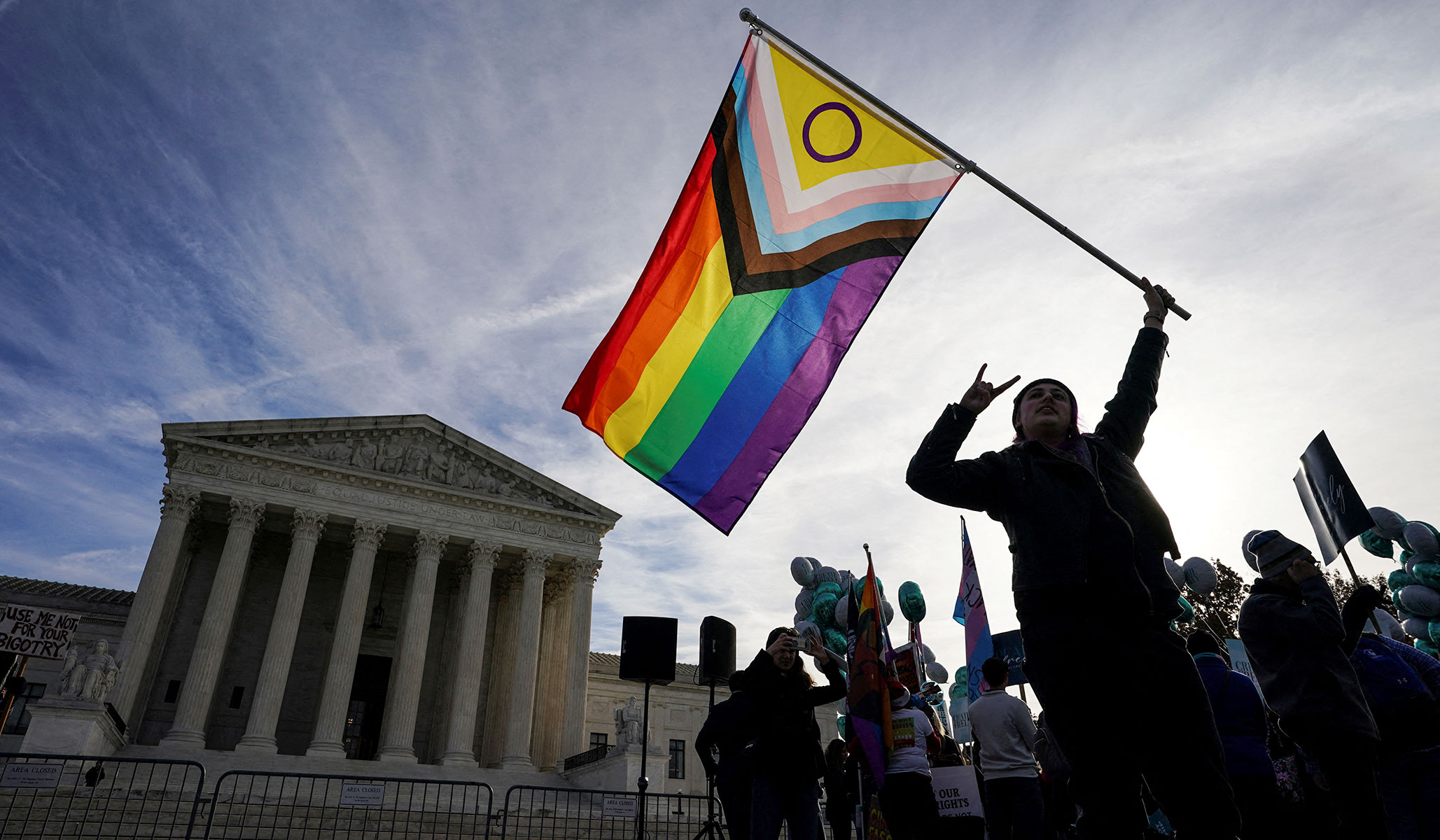The Left-Wing Assault on the Supreme Court
The Left-Wing Assault on the Supreme Court

From the New Deal to well past the Reagan era, progressives serenely regarded the United States Supreme Court, and thus the third branch of government overall, as being securely in their hands. The pieties they mouthed during this period — about the sacredness of Marbury v. Madisonand the importance of judicial independence to a vital republic — had the distinct virtue of being true.
But this language was equally a means to a rhetorical end during an era when the rulings of the Court’s liberal majority securely tended towards the expansion and centralization of federal government power or the passage of nationwide social legislation via judicial fiat, as in Roe v. Wade.The Court’s legitimacy was not to be questioned because the Court was accomplishing progressive goals in sweeping fashion and often with minimal theoretical attachment to inconvenient constitutional text or history.
Once progressives began, during Ronald Reagan’s second term, to realize they might one day lose this all-important preeminence, their attitude toward the Court began to shift. Their initial tactic was pitiless defense: The politicization of Supreme Court confirmation battles is an ongoing chapter in our national politics that began with the infamous 1987 Robert Bork confirmation hearings, in which Ted Kennedy demagogued one of America’s most conscientious legal scholars into a cartoonish demon for no other reason than that Roe v. Wade was thought to be on the line. (He was not wrong: The replacement nominee for Bork was none other than Anthony Kennedy, who soon joined the incoherent Planned Parenthood v. Casey decision reaffirming Roe.)
This continues to the present day. Democratic Supreme Court nominees inevitably sail through confirmation with minimum procedural fuss and the required political theatrics; Republican nominees receive invasive exams from the media and get accused of everything from sexual harassment (Thomas) to gang rape (Kavanaugh) to Catholicism (Barrett).
But now that Dobbs has shown not only that the Supreme Court has been definitively lost to progressives for the immediate future but also that the justices cannot be intimidated out of their constitutional principles, progressives have shifted to offense. It is a deeply ominous development for the country. The apocalyptic tone of left-wing commentary since the Court overturned Roe has now evolved into a smear campaign against the integrity of the originalist wing of the Court, a rash of stories all curiously appearing in serial rollout suggesting financial compromise or corruption on the part of Justices Gorsuch, Roberts, and Thomas. That the claims are spurious when not outright farcical is beside the point; the point is to throw enough dust into the air to trigger a “where there’s smoke there must be fire” instinct in low-information voters.
Justice Neil Gorsuch is indicted for selling his Colorado house for well below the asking price to a stranger who also happened to be the head of litigation firm Greenberg Traurig. Chief Justice John Roberts is apparently guilty of having a wife who has a career. (Jane Roberts actually gave up her extremely profitable litigation practice when her husband became Chief Justice for prudential reasons — Ruth Bader Ginsburg’s husband felt no such pressure to do so — and instead moved into recruiting and placement.)
Which brings us to the matter of Justice Clarence Thomas, a man who has long been told by his critics to “get Virginia Thomas under control.” Attacks on Thomas’s wife (a well-known conservative activist) are nothing new in the world of Supreme Court politics; the new charges are against Thomas himself: Thomas is accused of having a wealthy friend — Harlan Crow, a conservative donor and philanthropist — who spent generously on joint vacations and other acts of family charity. This is a quid in desperate search of a quo; Crow has never had any business before the Court. An exhaustive media treasure hunt for a Crow-related case turned up only a case the Court declined to take involving a company so distantly related to Crow that the federal rules did not require the filings to disclose any connection. Furthermore, Crow’s acquaintance with Thomas came long after Thomas had become a well-known originalist stalwart there. They are friends because they share similar political views, and because, one imagines, they enjoy each other’s company. (Disclosure: National Review Institute has sponsored events at Crow’s home, and he has donated to NRI.)
Thomas’s manifest contempt for his critics is its own kind of provocation, but this doesn’t appear to be a spate of random stories; rather, a centrally coordinated campaign timed in anticipation of upcoming rulings on affirmative action in college admissions and student-loan relief. And yet the authors of this campaign have long-range goals, not just short-term ones.
The originalist Court isn’t going anywhere for the time being, nor will it be moved by political intimidation. Democrats lack the votes to pack the Court or remove any of the justices. The authors of this media push have priced this in. This is the opening move in a longer war against the legitimacy of the Supreme Court as a whole. Activists have concluded that since they lack ideological control over the Court in the short term, it must be delegitimized in anticipation of an attempt to unilaterally expand it or otherwise neuter it when Democrats next gain significant majorities in both houses of Congress during a Democratic administration.
Even were they to regain unified control of Congress and the White House, progressives see the Supreme Court as the last remaining obstacle to an unchecked wish list of Democratic policy dreams. As a result, they are seeding the ground for a future political revolution: the destruction of the independent American judiciary.




Post a Comment